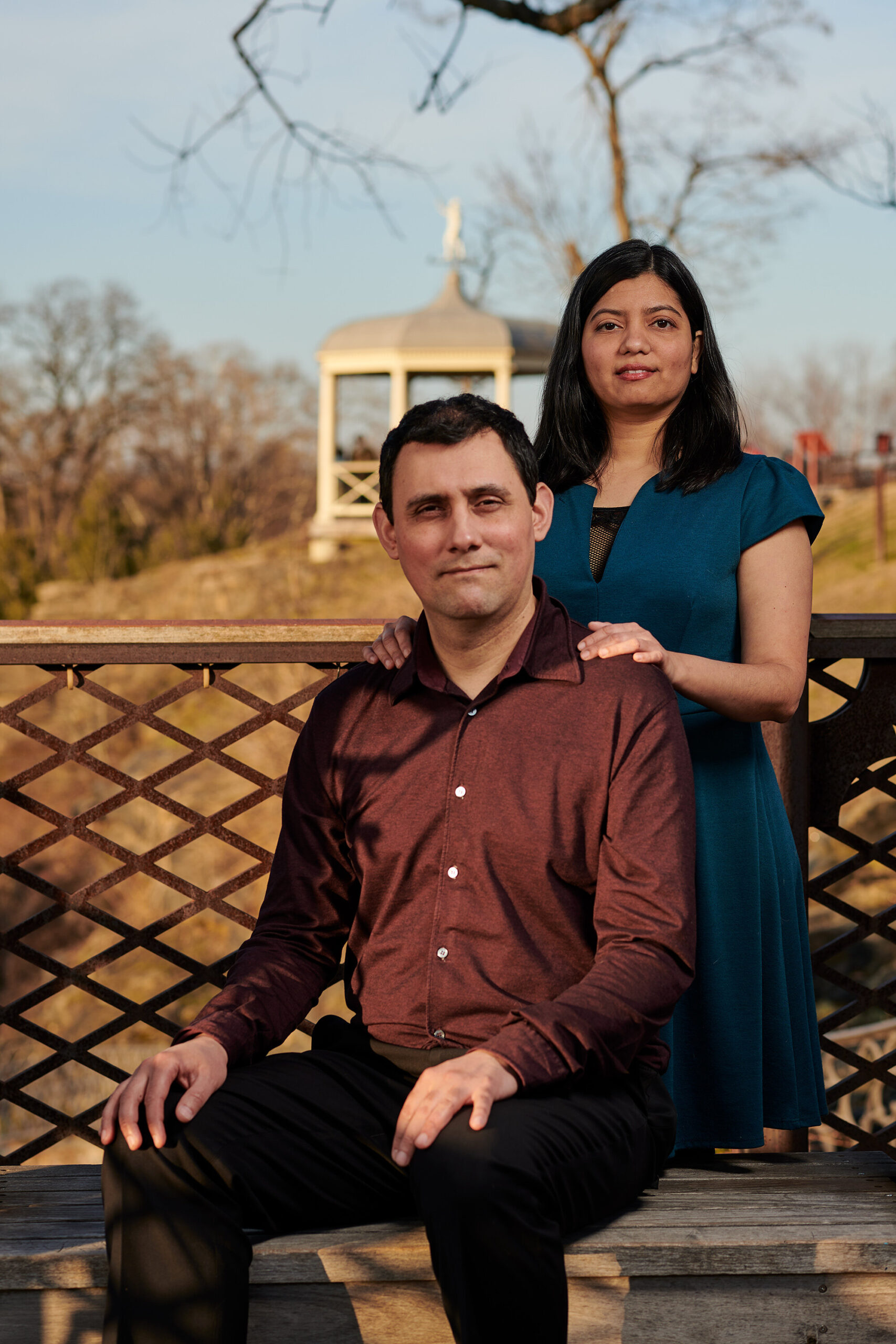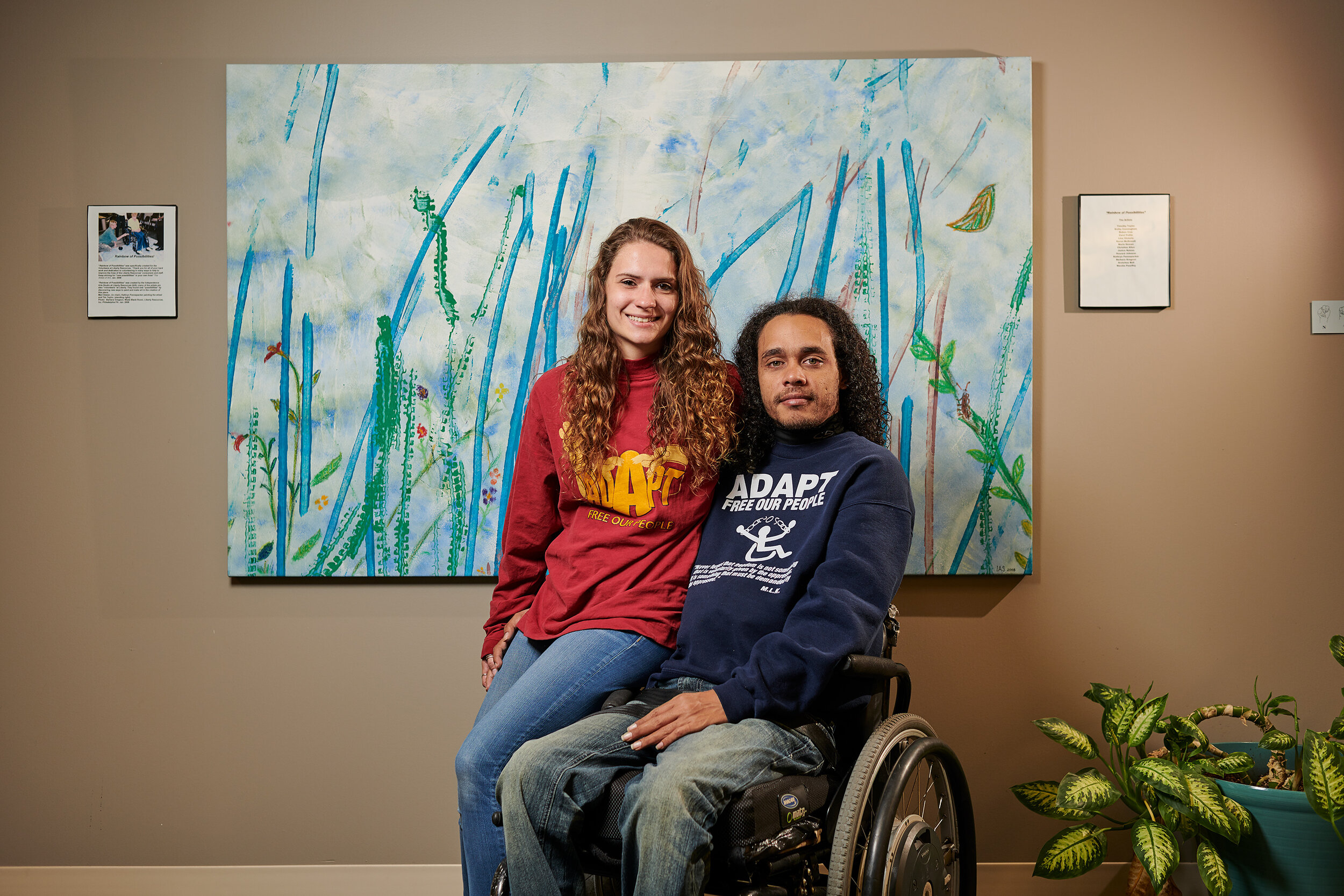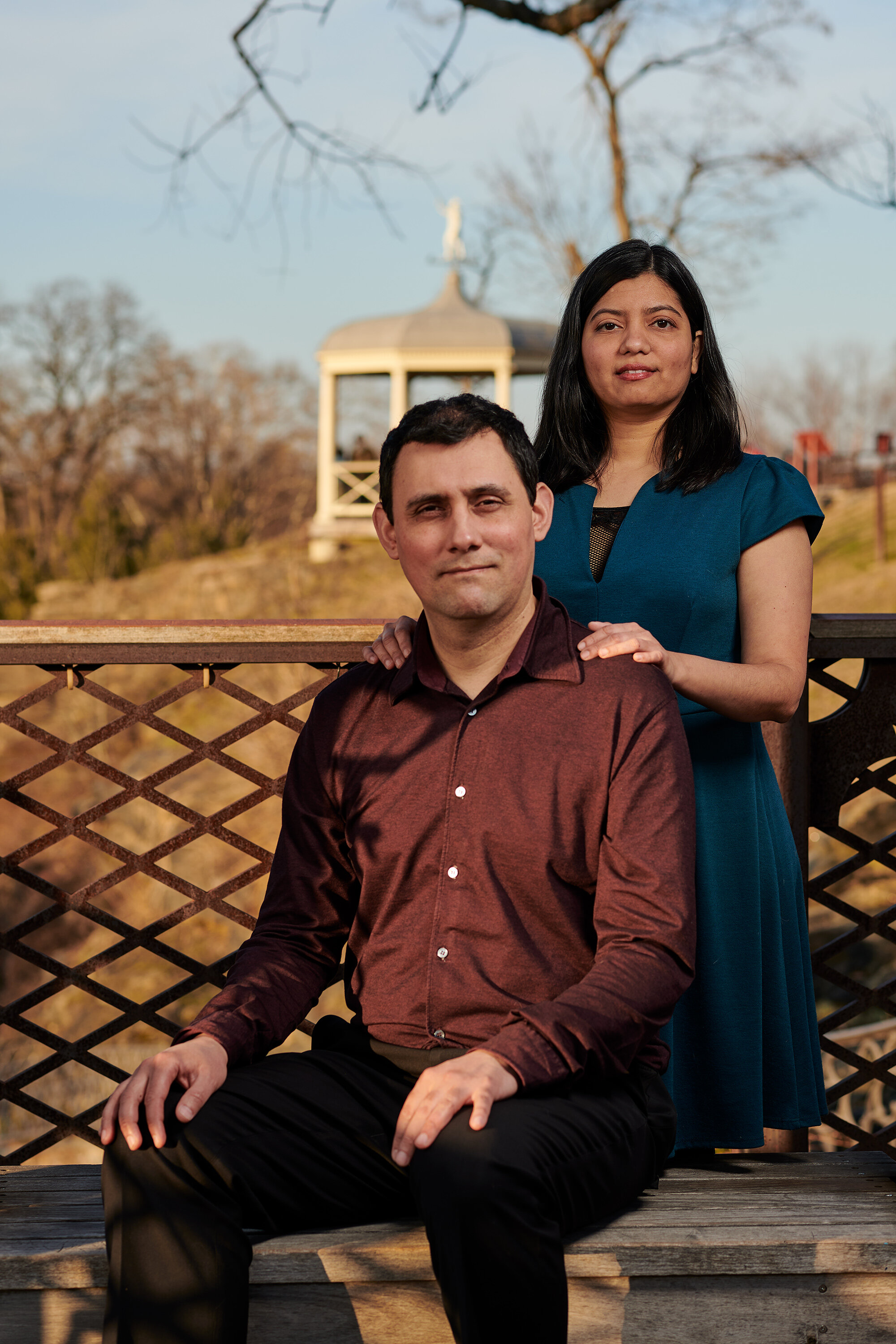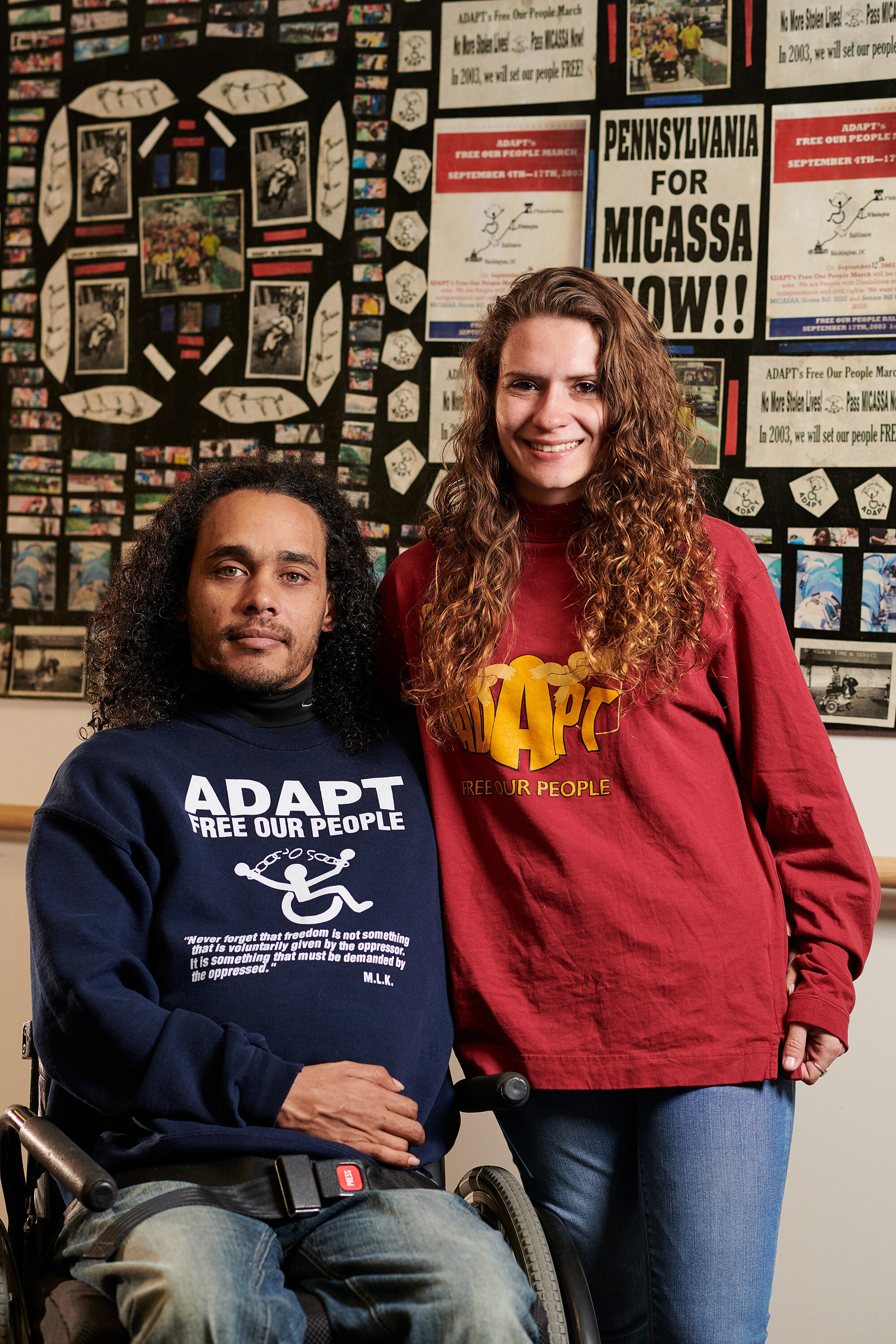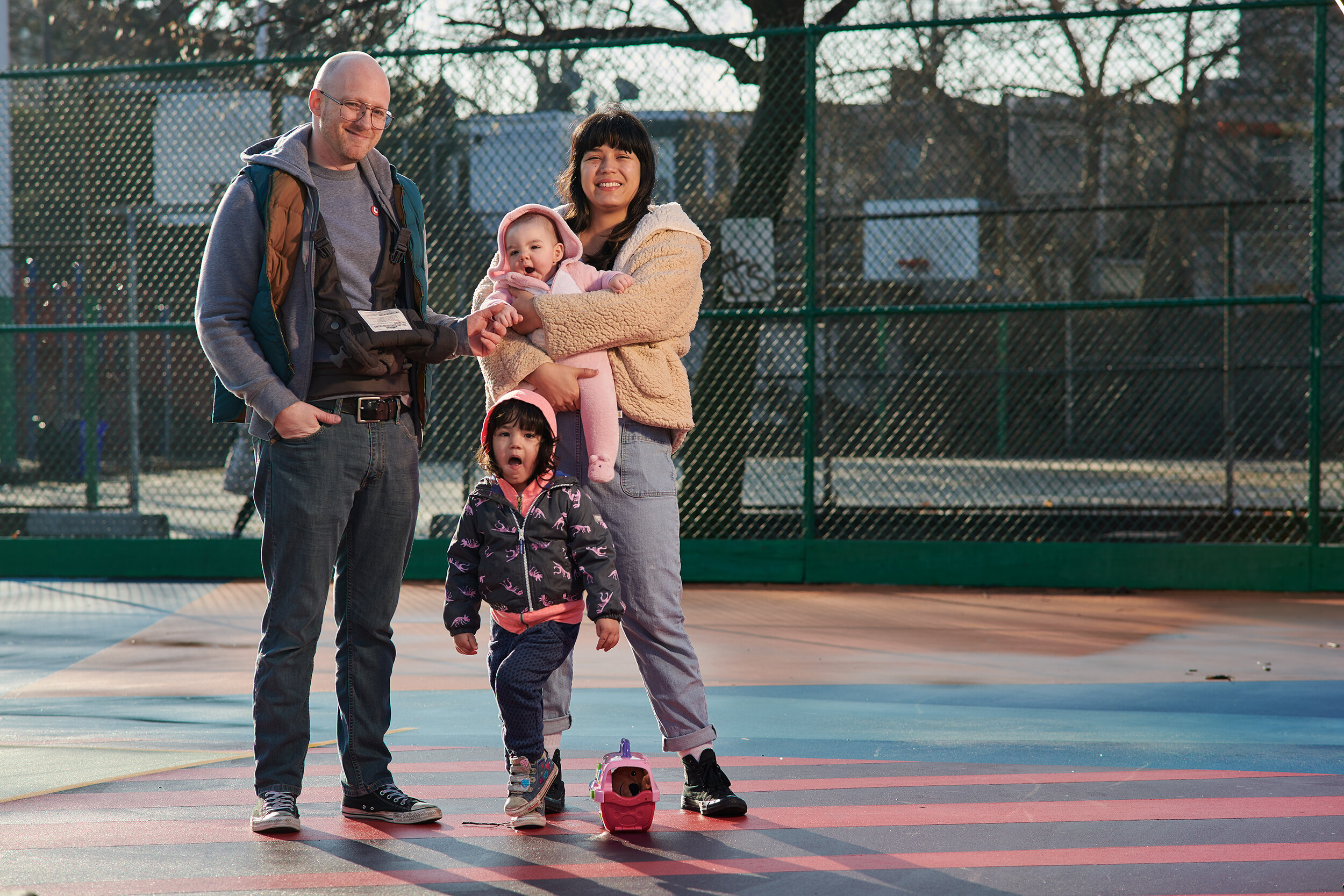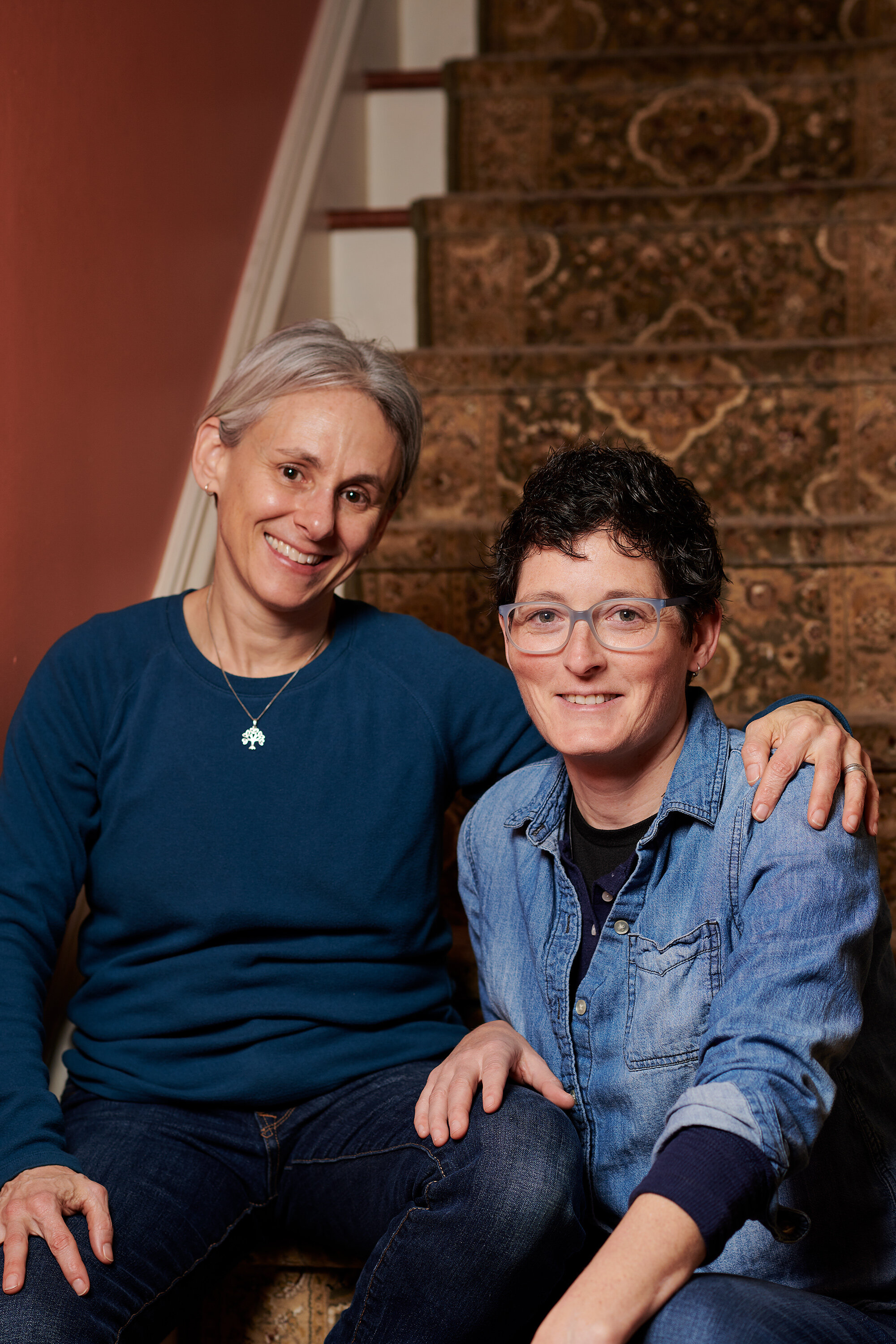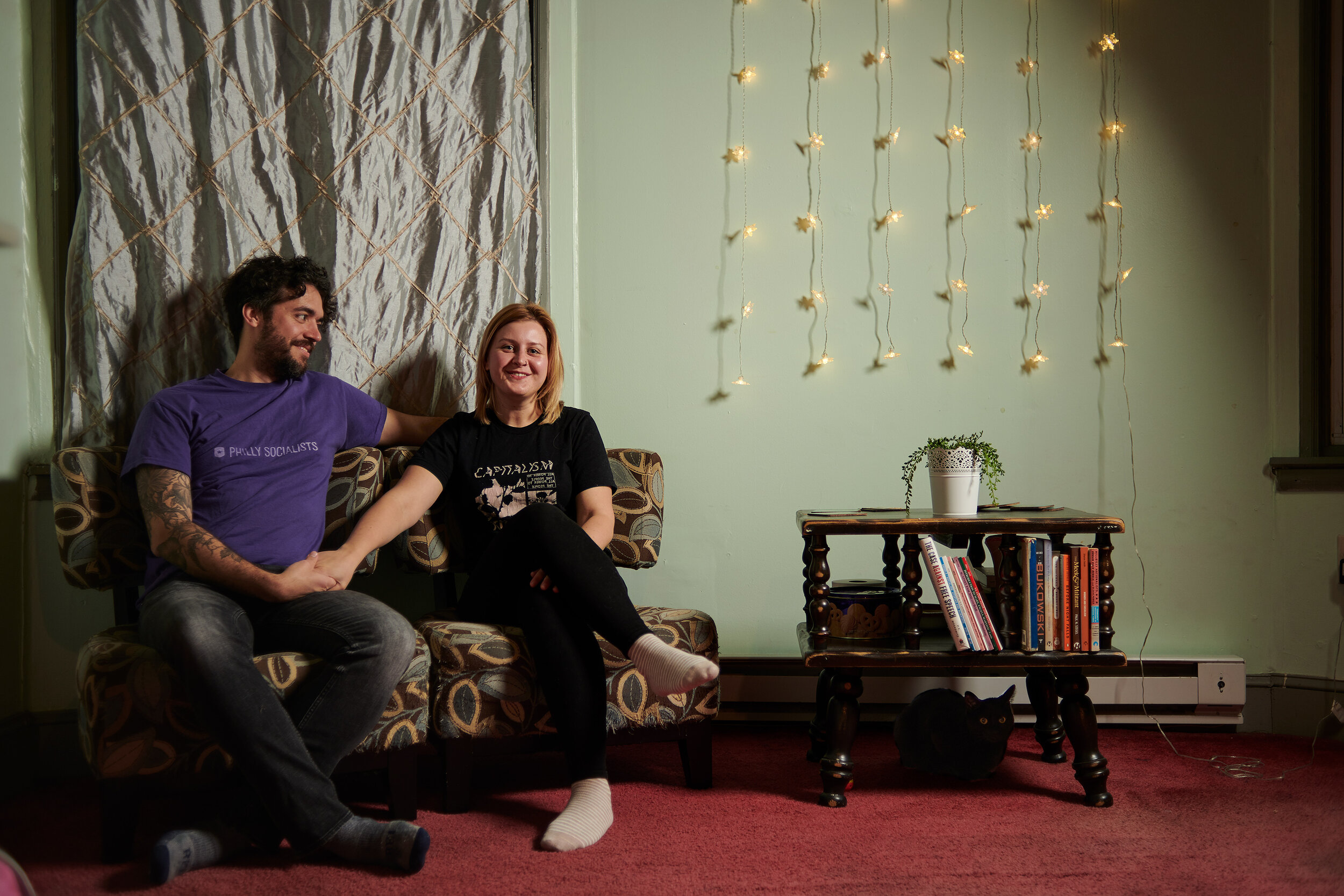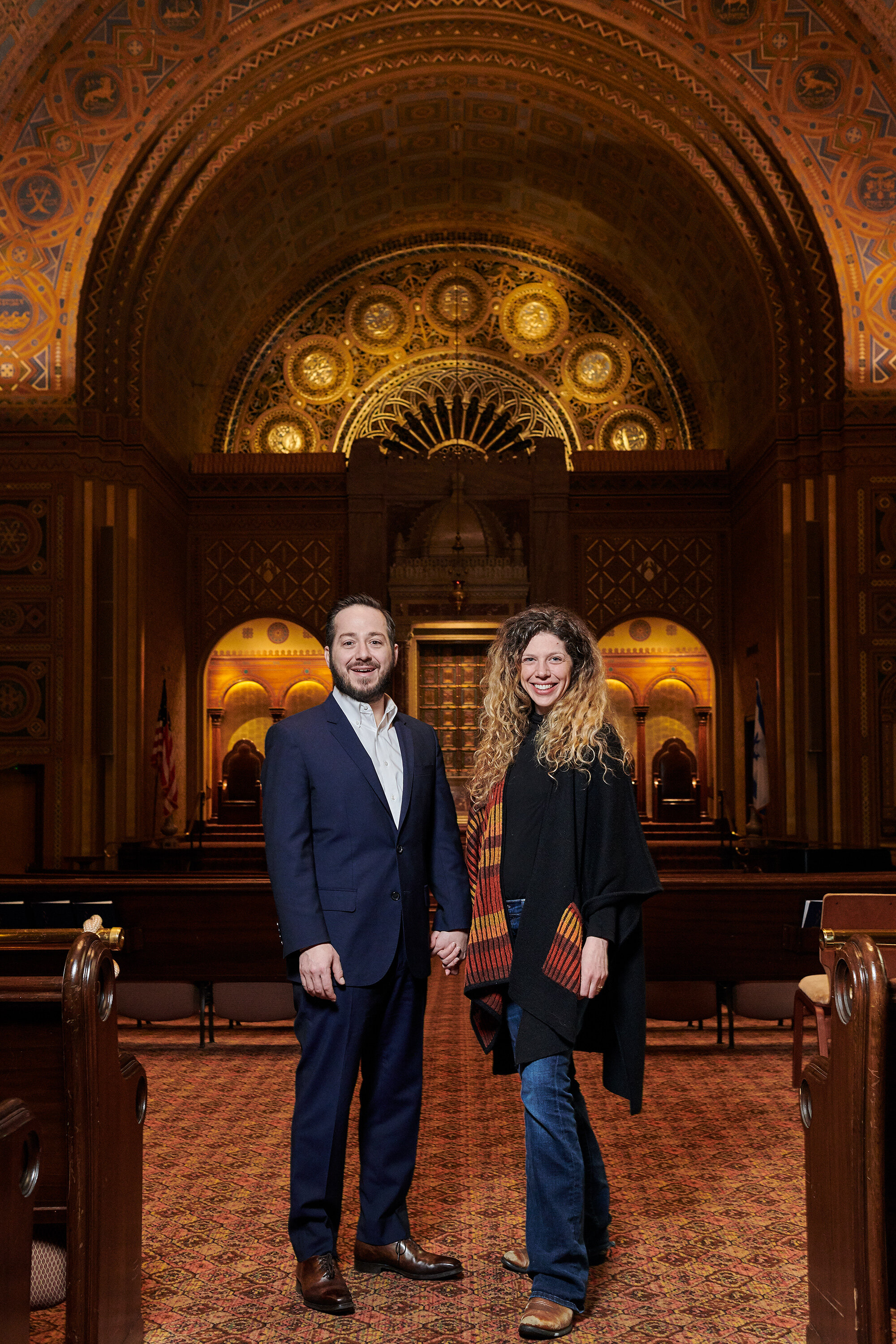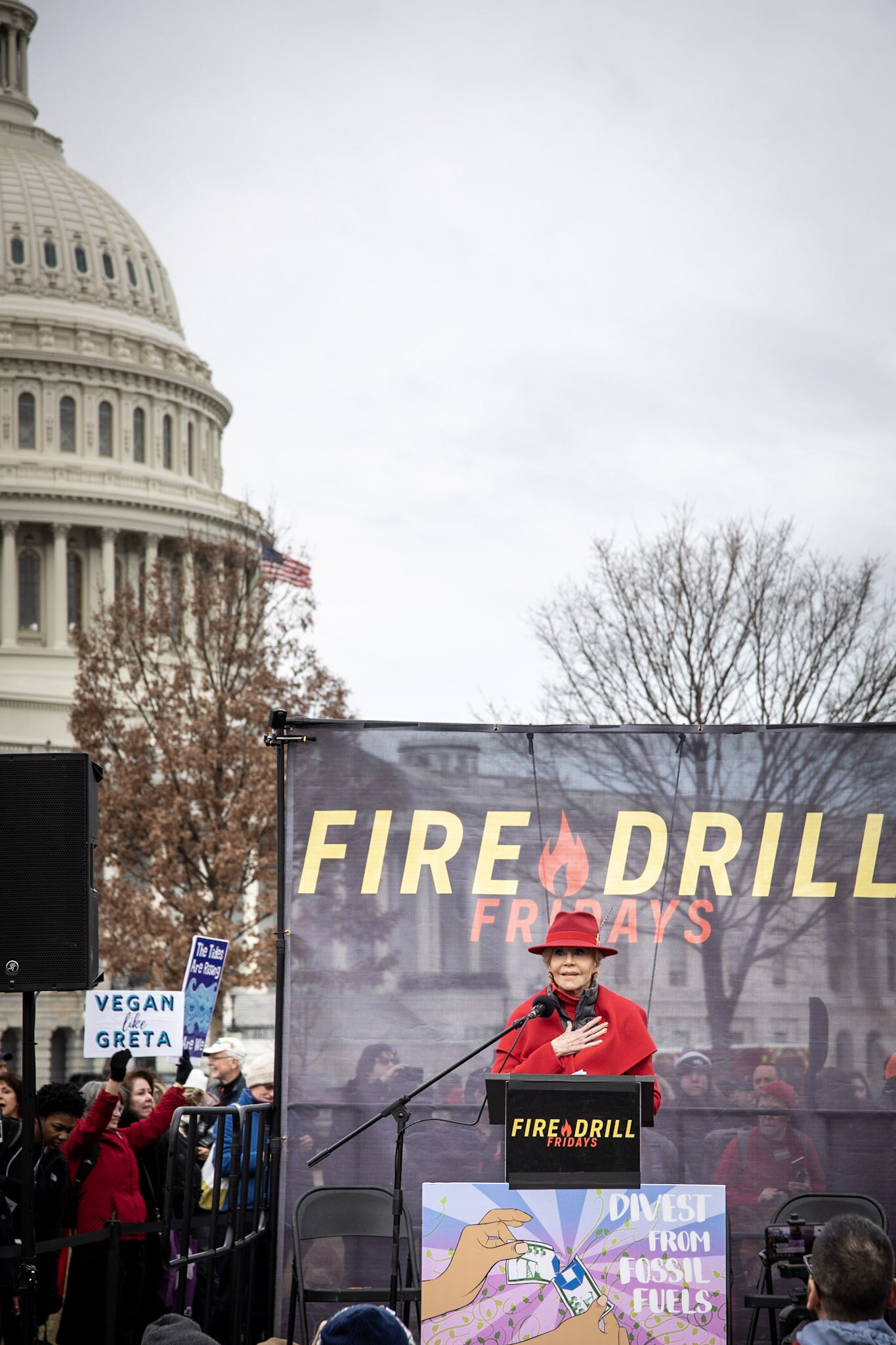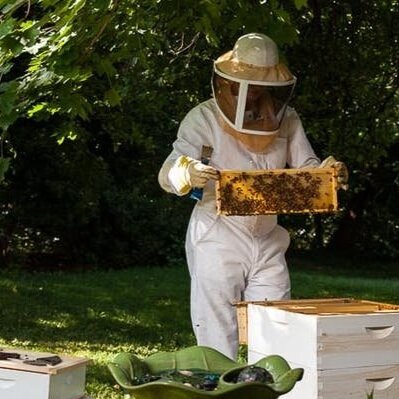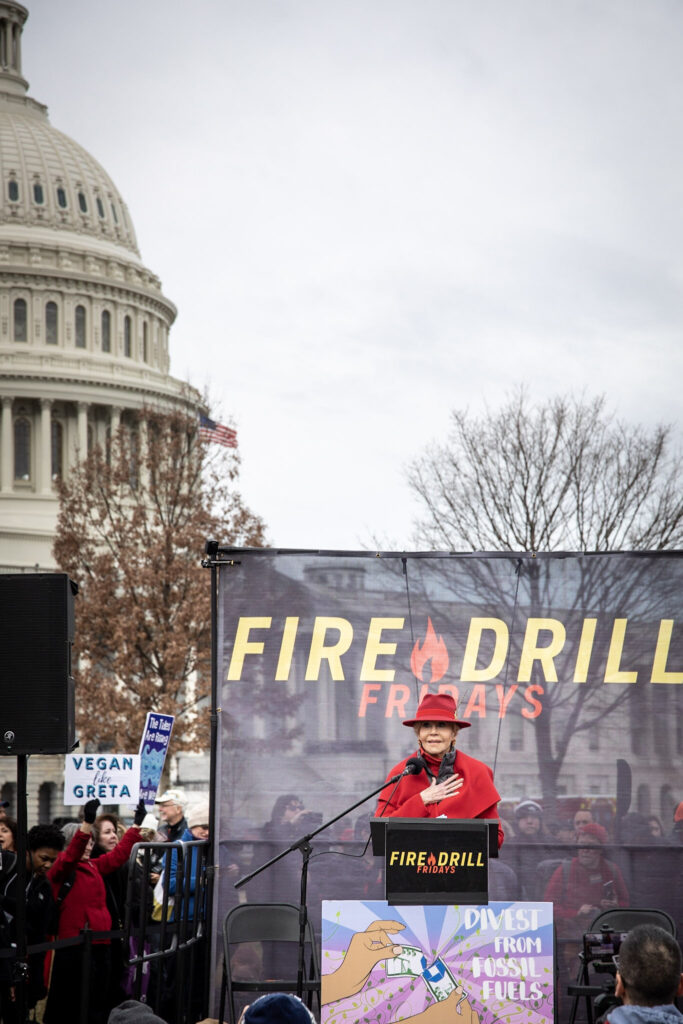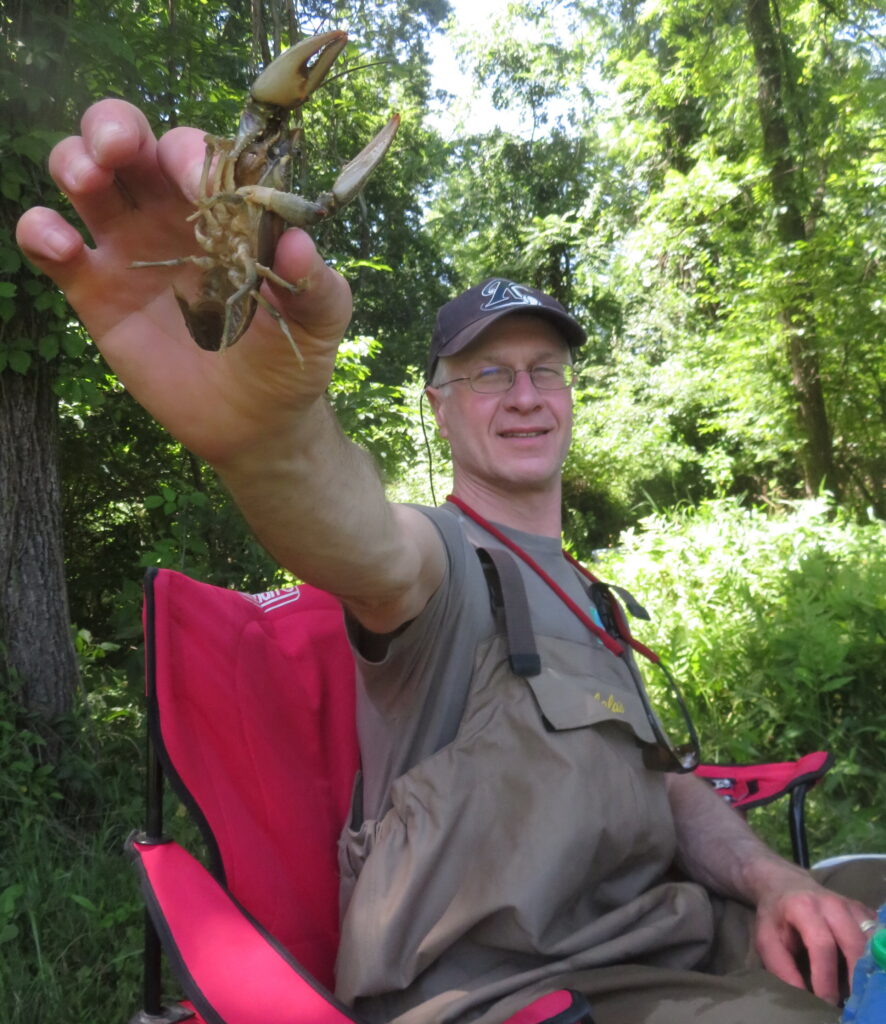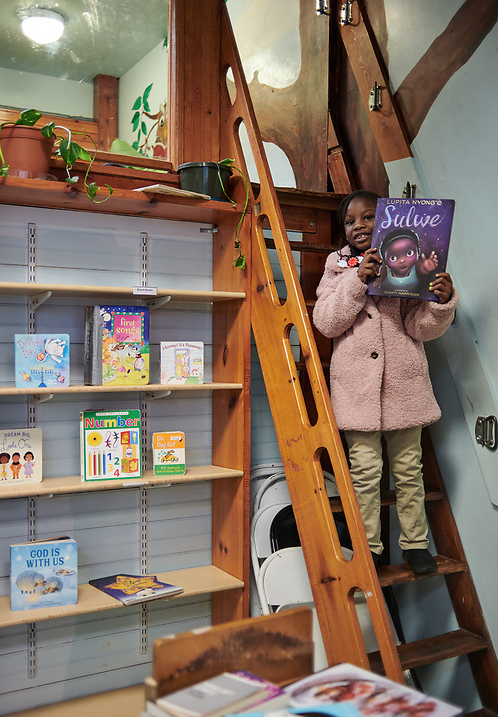Photography by Albert Yee
By Claire Marie Porter
Psychologists who research healthy relationships have found that complacency, or a lack of challenge, is often the death of love and romance.
Even long before modern-day science, the Ancient Greek fable-teller Aesop warned people against “the great chewing complacency.” Although some trials can certainly have the opposite effect on relationships, the overwhelming sentiment seems to be that too much comfortability can turn malignant, and that risk-taking, active partners have more lasting power.
That’s good news for these couples, who rather than going to the movies or taking a dance class, go to protests or help draft legislation.
While activism is tiring and emotionally draining, especially when it’s your main gig, it’s also incredibly rewarding work. As one couple put it: It’s one thing to have interests and hobbies in common—but quite another to share virtues.
It may just be a secret recipe for a thriving relationship. After all, is there anything more romantic than working alongside your partner to bring about social and political change?
-
Mansi and Juan: Compassionate Love
Photography by Albert Yee
Mansi Bhagwate, an occupational therapist who moved to Philly from India 10 years ago, says she’s always had an activist’s bent, so she was on the lookout for a partner who would not only support and understand her, but also be a part of her work.
In 2011, Mansi met Juan Ceballos on Craigslist. He was looking for an English tutor, and she was looking for a Spanish one.
What they found was more than a language exchange.
“We liked each other immediately,” says Mansi, “but were trying to stay professional. So Juan didn’t ask me out until about three months after for a casual movie date.”
The couple now lives in Manayunk and officially tied the knot last year.
Their mutual love for animals and stance on animal cruelty has grown together.
Mansi started an organization called Liberation Philadelphia that works toward liberation of both humans and non-human animals. The group holds vigils and protests, targeting corporate stores and live animal markets.
Mansi grew up eating meat, and she would sometimes witness the slaughter of animals and the cramped confines of goats at the live market.
“It never sat well with me, and I would come back feeling nauseated and depressed,” she says. “So at 16 in India, I finally decided to become a vegetarian after reading Mahatma Gandhi’s autobiography.”
When she learned about animal cruelty in the egg and dairy industrys, she went vegan.
“Veganism is a moral baseline for me, so the next step was activism,” she says.
Juan studies yoga and meditation, and his mindfulness has led to a heart for animals. In the United States, he was introduced to issues of animal cruelty through PETA.
“I was already a vegetarian because of yoga, but watching videos of animals going through unspeakable cruelties was enough for me to become vegan,” he says. “I admired Mansi’s passion for activism, and she got me involved, too.”
Juan has his own language business called Español and English Private Tutoring, but he continues to support and work with Mansi.
“You have to be compassionate to all living things,” he says. “I always try to follow those principles.”
For Juan, their marriage is founded on those principles.
“It’s a decision you make,” says Mansi. “It’s about social justice, not just health.”
Mansi has found the understanding she was looking for in Juan. He not only supports her, he drives her, and encourages her to investigate, she says.
“He never asks questions,” she says, “ … unless it’s ‘How can I help?’”
2. Germán & Shaylin: Love through Disaster
Photography by Albert Yee
Disability rights activists Germán Parodi and Shaylin Sluzalis don’t have a typical “boy meets girl” love story.
Germán, who has physical disabilities and uses a wheelchair, had been organizing with Philly Adapt, a grassroots community of disability rights activists, since 2006. Shaylin, who has an older sister who is disabled, had been involved in disability advocacy and activism most of her life.
In 2017, their paths crossed at a weeklong protest.
“It was love at first sight,” says Germán. “I couldn’t leave her alone the whole week.”
They met on a Saturday, and by Thursday they were in love, according to Germán.
They are now co-executive directors at the Partnership for Inclusive Disaster Strategies, a disability-and-disaster-focused program. They work with individuals with disabilities to make sure their voices are heard, before, during and after disasters.
“Our main role is to end the institutional bias, so folks have the opportunity to live in homes,” says Shaylin, referring to older adults and people with disabilities who need long-term care but are forced to leave their homes and live in nursing homes and institutions in any state that receives federal dollars for Medicaid.
Germán is the first medically described “severely disabled” person to do direct relief as a first responder, he says, and served as a first responder in Puerto Rico, his place of birth, after the devastation wrought by Hurricane Maria.
“Our life is really work, but our work is our life,” says Shaylin, “and if we don’t do this work, nobody else does.”
They both agree they are disability rights activists first.
“We are very consumed by what we do, but we love every moment of it, and being able to do it together makes it even better,” says Shaylin. She notes that without organizations like theirs, people with disabilities are often not taken seriously and left behind.
“Nothing about us without us,” is a chant the organization has adopted.
As a couple, they’ve helped develop two pieces of federal legislation, the Real Emergency Access for Aging and Disability Inclusion for Disasters Act (REAADI) and the Disaster Relief Medicaid Act (DRMA). These bills would work together to develop disaster strategies and provide services like research funding and uninterrupted Medicaid services for individuals with disabilities and older adults.
The couple feels their relationship is enigmatic. They do absolutely everything together.
“We come as a package,” says Shaylin. “Everybody kind of knows that about us.”
“I must say, in life, I have not experienced or witnessed something that better describes a match made in heaven,” says Germán.
“I couldn’t have said it better myself,” agrees Shaylin.
3. Tim & Mara: Socialists Get Social
Photography by Albert Yee
Mara Henao had a crush on Tim Horras as soon as she met him. Mara, originally from Colombia, had been living in Philly for eight years when she met Tim while organizing with Philly Socialists. The organization was working on cleaning up a vacant lot that eventually became the César Andreu Iglesias Community Garden.
“I was in a leadership role in the group,” says Tim, “and it was clear she was hitting on me.”
He says he was hesitant to return her advances at first, as there tends to be a lot of “macktivism” and sometimes “sleazy behavior” among activists, which can really turn the serious activists away.
A few months went by, and Mara continued pursuing Tim.
“I tried to avoid her,” he says, “but she was persistent.”
It was her persistence that ended up attracting Tim, he says, and he agreed to go out with her.
“I asked him out,” says Mara. “He’s very shy.”
The couple has now been together for six-and-a-half years, and they live in Kensington with their children. Both are co-founders of Philly Socialists, the Philadelphia Tenants Union, and members of Dignity Housing, a housing and supportive services program run by activists and the homeless. Mara works as a medical interpreter and coach at Philly Socialists; Tim is a librarian at Widener Library in North Philadelphia.
They agree that the values that led them to get involved in activism are things they both share, and lay at the core of their bond.
“We cheer each other on,” says Mara. She says with labor organizing, the work can be painful and depressing. Sometimes you work very hard for something and it doesn’t work out.
“We’re always picking each other up,” and sometimes celebrating the small victories, she adds.
“One of the things I most appreciate about my relationship with Mara is that she’s someone I can trust, and has my back,” says Tim. This is important with their work, which is often risky and even physically dangerous.
“Having someone you’ve been through thick and thin with,” he adds, “helps you have the courage to take stuff on.”
4. Lara & Marion: In the Stars
Photography by Albert Yee
Marion Leary did not believe in love at first sight. Until she saw Lara Kelly.
“But I don’t think Lara noticed me,” says Marion. “It was not a mutual experience.”
Marion has an identical twin sister, who was also living in Philly. Lara had crossed paths with Marion’s twin, so when Marion started “showing up” at the gym Lara worked at, it didn’t register with Lara that she was someone else.
“I didn’t even know she was Marion! I thought it was her sister,” says Lara.
Marion, who is 10 years younger than Lara, was nervous, and it took her awhile to make a move. But she finally found the perfect conversation starter when she learned they share the same birthday, November 29.
“It was my intro pick-up line,” says Marion.
The couple’s activism is separate, but mutually supportive. Marion is the director of innovation at the University of Pennsylvania School of Nursing and is in a part-time PhD program there. She was on the board of Start Talking Science, a science advocacy organization, and a co-organizer for the Philadelphia March for Science. She’s been protesting and volunteering most of her life, has served with Act Up, an HIV/AIDS service organization, which she says laid the groundwork for the rest of her life as an activist.
Lara is an environmentalist and Northern Liberties resident of 24 years. She serves as the co-chair for Northern Liberties Neighborhood Association’s Quality of Life committee, managing accounting and grants and overseeing all of their quality of life and environmental issues. She’s also an advocate for animal justice.
“About 10 years ago, I started volunteering at the city’s animal shelter,” she says, referring to the Animal Care & Control Team of Philadelphia.
She represents and cares for the dogs, and tries to get them adopted or fostered using social media posts.
Marion says that sharing a similar ethos, around social justice, human rights and environmental responsibility is essential.
“It’s taken a long time to get there,” says Marion, “but we have a really great partnership.”
“I would say if anyone doesn’t think their relationship is always a work in progress … they are kidding themselves,” says Lara. “It’s fun, but always a work in progress.”
They both agree having a partner who understands the need to drop everything and go march or show up at a protest makes a life of activism and love much easier.
“I’m a firm believer that you need to show up,” says Marion.
And they’ve raised their 15-year-old daughter to participate in activism, too.
“It’s a pretty fundamental part of our family,” says Lara.
And it’s the work they do that keeps them growing. Marion says she loves witnessing Lara’s commitment to her work and love for animals.
“I fall in love with Lara more and more every day,” says Marion.
5. Mar & Stephanie: Conspiring Together
Photography by Albert Yee
During a 2016 protest organized by Philly Socialists, Stephanie Altimari gave a speech, and Mar Escalante, who was attending the protest, was struck by its profundity.
The pair, who both use the nonbinary pronoun they, later met at a party.
“You’re Stephanie, you gave that speech. I really liked it,” Mar said to Stephanie at the party.
“I was like, ‘I wrote that on the way there,’ then I walked away because I felt really uncomfortable,” says Stephanie.
But they had a lot of mutual friends and continued to cross paths. Finally, they became friends on Facebook and ran into each other at another party.
Stephanie’s friend fell asleep on the couch, and Mar was the only other person in attendance that they knew.
“We talked all night,” says Stephanie. “They drove me home.”
In preparation for a police officer protest in 2017, the pair started spending a lot of time together. Finally, they started dating, merged their homes and cats, and have been together since.
Both organize with Philly Socialists and the Philadelphia Tenants Union. Stephanie is involved in labor organizing with Dignity Housing. Mar has been an activist for eight years, and their current work centers around prison abolition with the Philly Abolition Collective.
The constant action is actually a really great recipe for romance, they agree.
“There’s always something going on—we can conspire,” says Stephanie. “It keeps a spark going.”
It’s also the kind of work that can bring out the worst in people, Stephanie points out. Which provides opportunities for growth, and learning to love and maintain the relationship through it.
“Stephanie has just taught me a lot,” says Mar. “I feel indebted to be a better person and activist. I think that organizing together, it’s one of those things that strengthens a relationship.”
Shared values are essential when organizing together, says Stephanie.
“I think that’s the bedrock of a strong relationship. It’s a good place to start from, it’s a good place to grow on. It’s exciting, and it’s cute,” says Stephanie.
The couple was arrested last summer, for reasons related to their values, says Mar. They spent three long months in prison.
“If we are serious … about changing the world, we’ll come up against very powerful structures that don’t want the world to change,” they say.
Mar says their prison experience was illuminating, and they realized that being a serious activist inevitably means facing adversity.
“Having a loving, supportive life partner who is also a comrade in the struggle is absolutely invaluable for keeping the faith,” says Mar. “The struggle is lifelong, and keeping that faith for a better world is the only thing that will change it.”
6. Laurel & Eli: Deep Connection
Photography by Albert Yee
Laurel Freedman describes combining love and activism in a relationship as “a sense of alignment.”
“The work we do is what we do as a couple,” she says, “Some couples go out to bars—we go to protests.”
In 2006, Eli Freedman was studying at Hebrew Union College in New York to be a rabbi. Laurel, a graduate student from Texas, was shopping for master’s programs, and came to the college for a tour.
When Laurel’s tour guide was sidetracked by a “shofar emergency” (a shofar is an instrument played in Jewish religious ceremonies), Eli eagerly volunteered to take over.
“Yeah, I’d been making eyes at him,” says Laurel.
“I wasn’t there to scope out prospective rabbis or anything,” she laughs, “but he was wearing a Flaming Lips T-shirt, my favorite band, and he was using this futuristic-looking computer device. I thought he was so cool. He’s still so cool.”
Eli showed Laurel around the campus, and they got Korean food.
“We talked about God and theology,” says Eli. “Not your typical first date, but it connected us on a deeper level immediately.”
Laurel followed up the “date” with a handwritten thank-you letter, and the two reconnected a few months later when Laurel was coming back through New York City. She was about to lead a birthright trip to Israel, and the two went on a real first date “that lasted a few days.”
Laurel did choose to study at Hebrew Union College, and ended up getting a degree in social and Jewish nonprofit management. She also became a certain rabbi’s wife.
The couple now lives in Kensington with their two children, commuting to Rodeph Shalom synagogue, in West Poplar, where Eli has been a rabbi since 2010.
The majority of the couple’s social activism is through the congregation at Rodeph Shalom, which is a founding member of a multi-faith organization called POWER, Philadelphians Organized to Witness, Empower and Rebuild, and includes up to 50 different congregations that do justice work through an organizing model, as part of Faith in Action. The congregation also does immigration work through the Hebrew Aid Society and the Fairness Act, as well as LGBTQIA justice work.
The couple is particularly interested in education issues, and they go to Harrisburg often as a family, where they’ve participated in work on the Fair Funding Bill, a bill enacted in 2016 to equitably distribute state education funds across Pennsylvania school districts.
They run a summer program called Breaking Bread on Broad, providing food for students who rely on free food during the school year.
Laurel also started a CSA (community supported agriculture) which uses leftover food to make meals for the community, and recently started working on cannabis legislation with licensed medical marijuana companies. She organized a symposium at Rodeph Shalom called “Faith and Cannabis,” that featured a group of doctors, researchers, clergy, justice leaders and state senators.
Laurel says finding a realistic balance between work and family is challenging.
“It’s kind of a really awesome, but challenging buffet,” she says. “There’s always stuff to do, always people asking. It’s hard to carve out time. There’s always more work.”
Eli says it makes him think of a quote by Rabbi Tarfon from almost 2,000 years ago: It is not your responsibility to finish the work of perfecting the world, but you are not free to desist from it either.
Laurel describes their relationship as constantly growing, yet sustainable. They are creating a future for themselves and their children, together.

